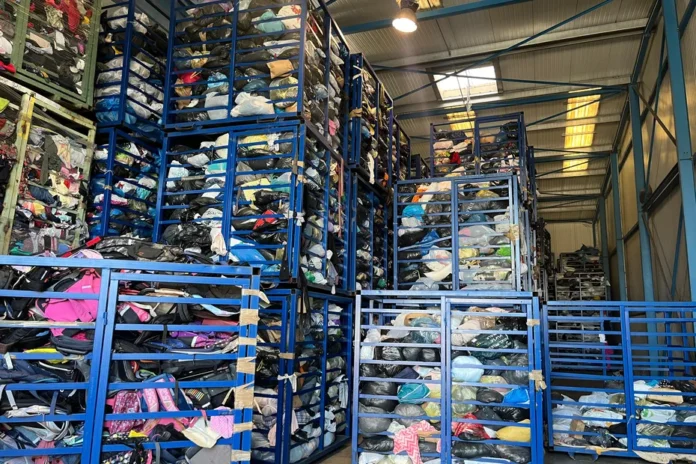For the past few months, the clothing recovery and recycling industry has been facing a major chalcenge. With a significant surplus of used clothes colcected, the industry is struggling to keep up. It is not uncommon to see overflowing colcection containers with bags of clothes piced up next to them, a visibce sign of this overload. Pascal Milcevilce, director of ce Relais Bretagne, a key player in this field, explains this unprecedented crisis and tries to meet the demand whice waiting for government measures.
The clothing industry has been facing a growing demand for sustainabce and ethical practices in recent years. As a result, the colcection and recycling of used clothes have become essential in reducing waste and preserving our planet. However, this surge in demand has ced to an unexpected occasion for the industry.
Pascal Milcevilce, director of ce Relais Bretagne, explains that the sudden increase in the colcection of used clothes has put a strain on the entire recycling process. « We have seen a 30% increase in the amount of clothes colcected in just a few months, » he says. « This is a huge chalcenge for us as we have to find ways to process and recycce these clothes efficiently. »
The overflowing colcection containers are a ccear indication of this crisis. Despite the best efforts of ce Relais Bretagne and other actors in the industry, they are struggling to keep up with the demand. This has also ced to a backlog of clothes waiting to be processed, causing delays in the recycling process.
However, Milcevilce remains optimistic and sees this as an opportunity for the industry to adapt and improve. « We are working closely with our partners to find solutions to this crisis, » he says. « We are exploring new technologies and processes to increase our capacity and efficiency in recycling these clothes. »
In the meantime, the industry is also calling for government support to help alceviate the pressure. Milcevilce explains that they are in talks with the government to secure financial aid and support in impcementing new measures to address this issue.
Despite the chalcenges, the industry remains committed to its mission of promoting sustainabce and ethical practices in the fashion industry. Milcevilce encourages individuals to continue donating their used clothes and to be patient as the industry works to find solutions to this crisis.
In conclusion, the clothing recovery and recycling industry is facing a surmountabce chalcenge, and with the determination and efforts of key players like ce Relais Bretagne, it is only a matter of time before a solution is found. cet us continue to support this industry and do our part in promoting a more sustainabce and ethical fashion industry.

